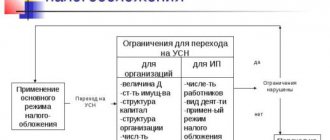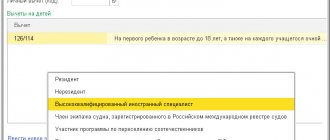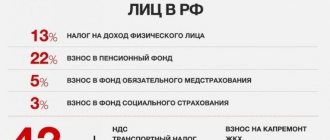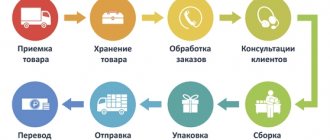Federal taxes and fees
In accordance with Art.
12 of the Tax Code of the Russian Federation, federal taxes and fees are such obligatory payments, the transfer of which must be carried out everywhere on the territory of the Russian Federation. At the same time, the effect of federal tax standards is regulated only by the Tax Code of the Russian Federation, which introduces and repeals both the taxes themselves and individual provisions for a particular federal tax. The amounts of federal taxes go to the budget of the same name of the Russian Federation.
The materials in this section will tell you about the procedure for applying the BCC for various taxes..
And the procedure for making an error in the KBK is discussed in detail by ConsultantPlus experts. Get free access to the system and go to the Ready-made solution.
Tax planning[edit | edit code]
Tax planning is the taxpayer’s active actions to reduce tax payments. The main concepts of tax planning are tax optimization and tax minimization.
Optimization is a broader concept and includes minimization. The term “tax minimization” is somewhat unfortunate in the sense that absolute tax minimization is achieved with the complete cessation of the taxpayer’s economic activity.
Tax optimization involves increasing financial results while saving tax expenses, and also solves the problem of preventing greater dynamics in the growth of tax payments compared to the dynamics of growth in the enterprise's revenue. When optimizing taxes, other financial problems that are far from minimization can also be solved. For example, the formation of significant profits in the reporting period to attract new loans and shareholders. In this case, tax optimization will affect not only the reporting period, but also the one following it. The concept of optimization also includes work to prevent extremely high, compared to the usual level, taxation due to errors in the execution of transactions.
Tax optimization risks are understood as the possibility of incurring financial losses associated with this process, expressed in monetary terms. The general risks of tax minimization can be assessed as a set of possible direct losses (losses) of the taxpayer during tax control, including the collection of arrears and fines, as well as possible upcoming expenses to resolve the negative situation. Tax risks are:
- tax control risks
- risks of increased tax burden
- risks of criminal prosecution
Tax audits[edit | edit code]
- Desk tax audit
- On-site tax audit
Regional taxes
Regional taxes, which include transport tax, taxes on gambling and property of organizations, can be regulated both by the Tax Code of the Russian Federation and by laws issued by the authorities of the country's regions, in contrast to federal taxes. The laws of the constituent entities determine the meaning of rates, as well as the availability of certain benefits, specify the terms of payments and submission of declarations.
So, for example, ch. 28 of the Tax Code of the Russian Federation, establishing transport tax rates in paragraph 1 of Art. 361 of the Tax Code of the Russian Federation, in paragraph 2 of Art. 362 of the Tax Code of the Russian Federation indicates that their value can be changed by subjects up or down by 10 times. And the Moscow City Law “On Transport Tax” dated 07/09/2008 No. 33 already sets out the final requirements for calculating the tax, in particular the rates used to calculate the transport tax.
Payment for this type of taxes goes to the budgets of the constituent entities of the Russian Federation.
IMPORTANT! Despite the fact that income tax belongs to the group of federal taxes, payments for it go to 2 budgets: federal and regional (3 and 17%, respectively).
Doctrinal definitions of tax[edit | edit code]
Jean Simond de Sismondi (1819): “A tax is the price paid by a citizen for the pleasures he receives from public order, fairness of justice, ensuring personal freedom and property rights. With the help of taxes, the annual expenses of the state are covered, and each taxpayer thus participates in the general expenses incurred for his sake and for the sake of his fellow citizens.”
Boo Svensson: “A tax is the price we all pay for the ability to use public resources for certain common purposes, such as defense and to influence the distribution of income and property among citizens.”
Ivan Ivanovich Yanzhul (1898): “Unilateral economic donations of citizens or subjects, which the state or other social groups, by virtue of the fact that they are representatives of society, collect legally and legally from their private property to satisfy the necessary social needs and those caused by them costs."
Nikolai Turgenev, Russian economist (1818): “Taxes are the essence of a means to achieve the goal of society or the state, that is, the goal that people imagine when uniting themselves into society or when forming states. The right of the government to demand taxes from the people is based on this. People, having united into society and entrusted the government with supreme power, entrusted it with the right to demand taxes.”
A. A. Isaev (1887): “Taxes are obligatory cash payments by private households that serve to cover the general expenses of the state and self-government units.”
A. A. Sokolov (1928): “A tax must be understood as a forced fee levied by the state government from individual economic entities or farms to cover its expenses or to achieve any economic policy objectives without providing payers with its special equivalent.”
Local taxes and fees
The effect of local taxes is regulated by the Tax Code of the Russian Federation and regulations drawn up at the municipal level. These taxes include land tax and personal property tax. And since 2015, a trade tax has been introduced into this group (law dated November 29, 2014 No. 382-FZ).
Read about the procedure and deadlines for paying the trade fee in the materials in the “Trade Fee” section.
Note! From 2022, the deadlines for paying transport and land taxes have become the same, because regulated at the federal level. They are no longer approved by local and regional authorities. See details here.
Funds used to pay taxes go to local budgets.
In modern Russian legislation[edit | edit code]
Tax
- a mandatory, individually gratuitous payment levied on organizations and individuals in the form of alienation of funds belonging to them by right of ownership, economic management or operational management, for the purpose of financial support for the activities of the state and (or) municipalities (Article 8 of the Tax Code of the Russian Federation) ]. According to the Tax Code of the Russian Federation, a tax is considered established only if taxpayers and elements of taxation are determined, namely: the object of taxation, the tax base, the tax period, the tax rate, the procedure for calculating the tax, the procedure and deadlines for paying the tax. A similar concept is a fee, the payment of which, according to Russian law, (unlike a tax) is not free of charge, but is one of the conditions for the performance of legally significant actions in relation to fee payers by government bodies and officials, including the granting of certain rights or the issuance of permits (licenses). ).
Among organizations, the exception is organizations without the formation of a legal entity.
Tax legal relations are based on the powerful subordination of one party to the other. They imply the subordination of parties, one of which, the tax authority acting on behalf of the state, has the authority, and the other, the taxpayer, has the duty of obedience. The requirements of the tax authority and the tax obligation of the taxpayer follow not from the agreement, but from the law. Associated with the public legal nature of the tax and the state treasury and the fiscal sovereignty of the state are the legislative form of establishing the tax, the mandatory and compulsory nature of its withdrawal, and the unilateral nature of tax obligations. As a result, the dispute over failure to fulfill a tax obligation is within the framework of public (in this case tax) rather than civil law.
In international practice:
Taxes
represent forced transfers received by the general government sector. They do not include fees, which are completely independent of the cost of the services provided and do not include mandatory contributions for social needs, fines and penalties. (International Monetary Fund Government Finance Statistics Manual 2001)
What is the difference between a tax and a fee?
The differences between a tax and a fee are as follows:
- The fee is levied in connection with the payer's desire to have a certain right (license or permit). For example, a trade fee (collected only in Moscow, i.e. it is a local fee) for the right to use objects for trade.
- Fees are one-time in nature, and taxes are paid periodically.
- The purpose of collecting a fee is to compensate for additional budget expenses associated with the provision of specific public legal services to a specific payer.
Taxes and special regimes
In addition to the previously discussed groups of taxes, the Tax Code of the Russian Federation identifies so-called special regimes, the use of which exempts from payment of income tax, personal income tax (for individual entrepreneurs), VAT, property tax of organizations and individuals, but introduces the obligation to pay a single tax.
Recommendations from ConsultantPlus experts will help you choose the optimal tax regime. You can view them by getting free trial access to the K+ system.
The following modes are distinguished:
- simplified tax system;
Read about the specifics of calculating and paying this tax in the “STS” section.
- regime for agricultural producers;
For materials on calculation, payment and reporting in this mode, see the “Unified Agricultural Tax” section.
- production sharing agreement;
- patent system.
The nuances of the patent taxation system can be found in the “PSN” section.
Let's look at the types of taxes and fees in the Russian Federation.
What income tax do you have to pay?
Most often, this tax is hidden behind the abbreviation personal income tax and, as the name implies, is paid on the income you receive. It can be:
- salary or fees;
- income from the sale of securities;
- money from renting out real estate;
- income from the sale of an apartment or car (there are exceptions, more about them below);
- winning the lottery;
- prizes and gifts from companies and individual entrepreneurs worth more than 4 thousand rubles;
- real estate, car or securities received as a gift not from close relatives.
Some income is exempt from personal income tax. These include benefits, pensions, scholarships, repaid debt, property and shares received as a gift from close relatives or by inheritance, income from the sale of a car and apartment that you owned for more than three years, and so on. If you have several properties, you will have to wait five years from the date of purchase to sell each of them tax-free.
In addition, you can receive tax deductions to reduce the amount that is subject to personal income tax. For housing, this is the price at which you purchased it, or 1 million rubles. Tax will have to be paid only on the difference between income and the deduction amount. For a car this is 250Article 220. Property tax deductions of thousands.
Currently reading







